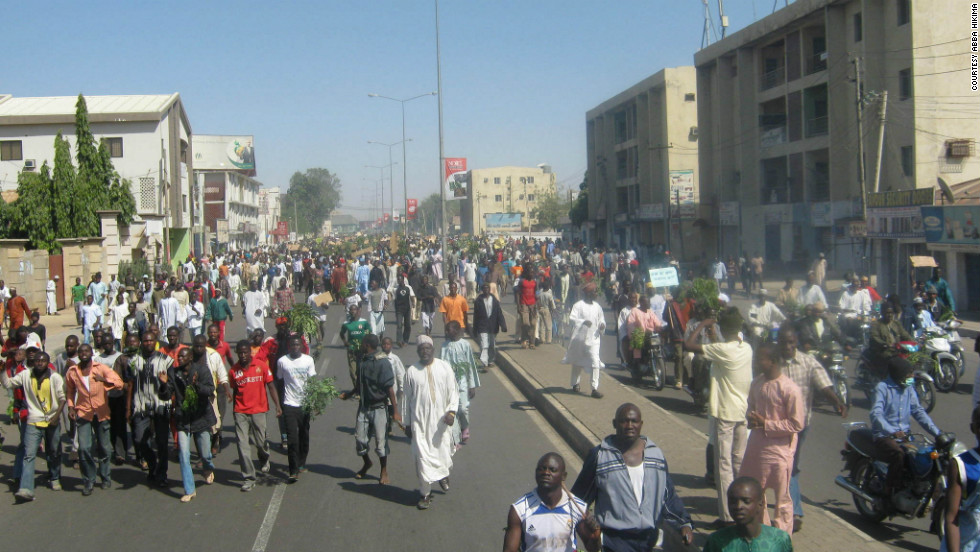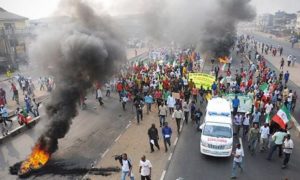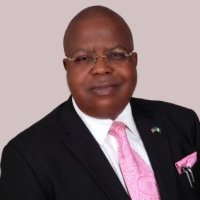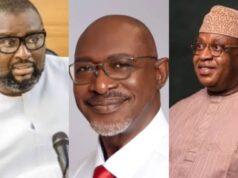 The Arab Spring, a series of anti-government protests, revolts and uprisings started in early 2011 in Tunisia and led to the ousting of long time Tunisian leader, Zine El Abidine Ben Ali. By the time it came under some control, it had severely impacted eight countries, dislodging powerful Middle East rulers like Hosni Mubarak of Egypt who had been in power since 1980. It plunged Syria, Libya and Yemen into long drawn conflicts, forced deep political reforms in Morocco and Jordan, while changing the political landscape of the region for a long time to come, if not forever.
The Arab Spring, a series of anti-government protests, revolts and uprisings started in early 2011 in Tunisia and led to the ousting of long time Tunisian leader, Zine El Abidine Ben Ali. By the time it came under some control, it had severely impacted eight countries, dislodging powerful Middle East rulers like Hosni Mubarak of Egypt who had been in power since 1980. It plunged Syria, Libya and Yemen into long drawn conflicts, forced deep political reforms in Morocco and Jordan, while changing the political landscape of the region for a long time to come, if not forever.
The Arab Spring was precipitated by deep rooted resentment by the masses against the ruling class. The resentment was fuelled by mass anger against the prevailing pervasive corruption, high youth unemployment, high inflation in the backdrop of a geriatric ruling class that had been there for decades, and its resistance to mass demand for political reforms. At the onset of the Arab Spring, the Egyptian leader Hosni Mubarak had been in power for 31 years; the Tunisian President had been in power for 27 years; while Muammar al-Qaddafi had ruled Libya for 42 years, the youth felt that the sit-tight ruling class would never create room for their upward mobility confining them to abject poverty in harsh prevailing economic conditions. Most university graduates were unable to secure employment commensurate with their education and had to settle for menial jobs in order to survive. Engineers trained in good universities found themselves working as taxi drivers. In Egypt, the uprising was sparked by a single Facebook post that called for a mass protest exploding into a response by tens of thousands that overwhelmed and toppled the ruling class.
LESSONS FOR NIGERIA
The precipitants for an Arab Spring type uprising exist today in Nigeria and in many other West African countries. The political and ruling class can avert this by taking immediate steps/measures to reduce the risk factors for a potentially catastrophic chapter in the nation’s history.
- UNEMPLOYMENT
According to the Nigerian National Bureau of Statistics (NNBS), unemployment in Nigeria today is about 9.90%. This figure is hotly contested by Non Governmental Organizations and other stakeholders as unrealistic who feel 34% to be more realistic. See Tolu Ogunlesi, FACTSHEET: How Nigeria’s unemployment rate is calculated in africacheck.org. Bringing it into perspective, France with an unemployment rate of 10.5%, (as of April, 2015)would have a higher unemployment rate than Nigeria using the NNBS figure. Important to note that Nigeria recently changed the way unemployment is calculated, adopting a formula that lowered the rates compared to the past. Today, people who work for twenty hours per week are regarded as having full time employment as against the forty hours per week benchmark used previously.
According to the Nigerian National Population Commission, in 2012 Nigeria had a population of 167 million, half of which are youth defined as those between the ages of 15 and 34 years. Over 11 million of the youth are unemployed presenting a picture bleaker than what is painted by statistics. The jobs are simply not there and many job seekers while they possess the paper qualifications, are unemployable because they lack basic skills for today’s job market. The ones in highly skilled areas like medicine, pharmacy and nursing, seek employment overseas where there is great demand and better remuneration for their skills. Hundreds of accredited and unaccredited universities, polytechnics, and other institutions of higher education churn out graduates in their thousands annually, with little or no employment prospects. Rather than create a level playing field for the scarce employment opportunities that become available, the ruling class allocate the employment positions to their cronies and off springs. The masses when lucky, have to purchase very scarce employment positions and become victims of numerous employment scams, losing hundreds of thousands of Naira. The female applicants are subjected to sexual exploitation, without any assurances of obtaining employment. Meanwhile, the children of the ruling class, (who most of the time are educated overseas, using funds embezzled by their parents from the Nigerian Commonwealth), are not subjected to such indignities. These privileged few are beneficiaries of employment allocations, while millions of Nigerian youth who graduated many years ago are condemned to hideous and soul destroying unemployment or menial jobs.
Three recent examples will bring clarity to the scandal of youth unemployment that threatens to engulf the country.
On March 15, 2014, over 200,000 job seekers reported to a poorly organized recruitment scam by the Nigerian Immigration Service having been made to cough up illegal levies totaling about N520 Million. About 20 of the job seekers died in the ensuing stampede. The then Minister of Interior, Mr. Abba Moro and other officers are presently standing trial for this scam. One would have thought that after this public black eye, the Immigration Service would have learnt a bitter lesson. That however was not the case because in December 2015, it came to light that the Immigration Service secretly recruited about 500 officers without due process and publication. It is alleged that that the beneficiaries were wards and nominees of top public officers, politicians and the ruling class.
In March 2016, it came to light that the Central Bank of Nigeria allocated 91 employment positions to children and wards of the top Nigerian ruling elite. It was said that this employment placed these wards in enhanced positions beyond their experience and educational qualifications. To mask the apparent deceit and criminality of this job allocation, some employment letters are alleged to have been issued with fictitious names.
The public outcry over these odious practices was short lived but like a tinder, no one knows when the spark will ignite and conflagrate the nation given the presence of robust social media in Nigeria, like Facebook, Twitter and WhatsApp. It takes just one flash point. Mohammed Bouazizi was a 26 year old unemployed man from Tunisia who tried so hard without success in seeking government assistance to get employment. He tried and failed getting into the army neither could he secure employment with public and private enterprises, he then started a small business selling vegetables from a kiosk. The government stopped his business by confiscating his vegetables and kiosk effectively barring him from feeding his family and paying his sister’s school fees. Out of frustration, he set himself on fire in front of the government building where his confiscated kiosk rested, thus registering his extreme condemnation of the 23 year regime of President Ben Ali. This tragic self-immolation triggered a mass uprising and spurned a revolution which brought down the ruling class and government in Tunisia.
The issue of massive and pervasive youth unemployment in Nigeria is a ticking time bomb that needs to be addressed in earnest and with utmost urgency.
2. CORRUPTION
According to Hamza Abbas Jamoul writing in the Al Manar News, “Economic hardships can be tolerated if the people believe there is a better future ahead, or feel that the pain is at least somewhat equally distributed.”
A situation where a small group of people engage in thievery to govern the people is known as KLEPTOCRACY. Such a group consolidates tyrannical powers by transferring the country’s wealth and power from the public to only a few. The kleptomaniac ruling class usurp all the democratic rights of the people, embezzling all their money, using same to buy justice, liberty, influence, and an upper crust existence for their generations unborn. In the case of Nigeria, these people own homes in choice areas of Lagos, Abuja and other cities, as well as in other world capitals. They own fleets of cars, their children are educated overseas, they seek medical treatment overseas even for minor tooth aches while denying Nigerians funding for mass transportation, good education and quality health care, Money allocated for the building of infrastructure like well-equipped and functional hospitals is embezzled and construction of a sustainable mass transit system in Nigeria is sabotaged while playing politics with the payment of a paltry N5000 per month stipend to the unemployed youth. This group has billions of Naira and foreign currency in local and foreign banks and some of them feature prominently in the recently released PANAMA PAPERS, setting up contraptions to hide their ill gotten wealth as well as making certain Nigeria is denied the tax revenue that would better the lot of the common man.
In 2015, the World Bank released a list of Nigerian looters with billions of dollars trapped in banks all over the world. In January of 2016, the Nigerian Minister for Information, Lai Mohammed informed the world that between 2006 and 2013, 55 Nigerians stole over N1.34 trillion. He went on to say “We know that those who stole us dry are powerful, they have newspapers, radio and television stations and an army of supporters to continuously deride government’s war against corruption…Corruption is responsible for the endemic poverty in the country today”. Premium Times Newspaper, January 18, 2016.
According to Shehu Sani, the Nigerian Senator representing APC, Kaduna Central, and the Chairman, Senate Committee on Foreign Relations, corrupt Nigerians have stashed over $200 billion in United Arab Emirates especially, Dubai. Nigerian Vanguard Newspaper, January 26, 2016.
The on-going War Against Corruption, (WAC) unearths daily, billions of Naira in embezzled and stolen funds by people in the public and private sectors. The psyche of the public appear to be numbed by the magnitude of theft of public funds which has rocked the nation to its foundation. It is difficult for Nigerians to reconcile these stolen billions in the pockets of a few with the harsh economic hardship that is suffocating Nigerians. While the EFCC has embarked on highly publicized arrests, prosecutions, and seizures, the public is holding its breath to see how many of these prosecutions result in long term commensurate sentences, return of the stolen funds and its use to improve living conditions for the population. If wishes were horses, nothing will make Nigerians happier other than to see a wave of voluntary return of the embezzled or ill-gotten funds.
Corruption continues to stare Nigerians in the face daily. As Nigerians struggled to scratch out one meal a day, news broke of the billions of Naira spent to procure vehicles for members of the National Assembly. This scandal was followed by the outrageous padding of the 2016 federal budget, including an alleged N100 billion allocation set aside as “Constituency Projects” for members of the National Assembly. Sahara Reporters, May 16, 2016. As Nigerians battle to comprehend the efficacy of the operation of a ubiquitous federal government system saddled with fulltime legislators at the local government, state and federal levels, most have come to agree that this system is fiscally challenging, impossible to sustain given the current economic realities in Nigeria amid questions of whether the people are getting any value or their money’s worth from this system and whether these elected government officials are representing themselves or the populace.
Unfortunately, the hydra-headed corruption has not spared any branch of life in Nigeria, from public to private life, attacking the executive, legislative and the once thought to be sacrosanct judiciary.
The spiraling hyper inflation, the devalued Naira, the removed fuel subsidy, the total collapse of the economy and the evaporation of personal and economic security make Nigeria a bubbling cauldron for mass agitation. This may possibly be averted if government does a better job of selling to Nigerians the gospel, that better days are ahead.
There is fairly general consensus that in a civilized society, the first and primary duty of government is the protection of its citizens. Even before Boko Haram, (the most dreaded terrorist organization in the world), the Nigerian government had fared poorly in keeping their own end of the social contract. In 1971, Ishola Oyenusi and his gang of seven were executed at the Bar Beach- Lagos, for a robbery at the WAHUM factory that netted the group $28,000. The execution was witnessed by over 30,000 persons. It was alleged that Oyenusi confessed that he would not have become an armed robber if his father had the money to train him in secondary school. Those days, crimes such as armed robbery were novel to Nigerians and attracted public condemnation. Kidnappings were rare and embezzlement of public funds was seen as a serious crime with the culprits and their families made pariahs and ostracized. Many people who faced investigative panels probing their handling of public funds usually died of heart attacks before the conclusion of proceedings. No one knows precisely when the Nigerian psyche became numbed to crime and the fruits there from, or when it attained the glamorization that it has today. By 1992 when the popular Nollywood thriller Living in Bondage came out, making money at all costs in Nigeria had become the norm. The film tells the story of a man who joins a secret cult, kills his wife in a ritual sacrifice, gains enormous wealth as a reward, and is afterwards haunted by the dead wife’s ghost. Today, armed robbery is common place, no longer news and has been joined by more lucrative criminal enterprises like kidnapping, brigandage by herdsmen, oil bunkering, cultism, violent agitation for separatism and so many other vices that have cheapened the life of the Nigerian. The meager sums for which armed robbers were executed in the 1970s are peanuts compared to the billions which few Nigerian elite now embezzle on a daily basis without any fear of repercussions, recriminations or public odium. While those in the privileged class could afford the luxury of police orderlies protecting them and their families, the ordinary Nigerian is exposed to the ugly prospect that his or her life is worth little or nothing and could be lost in a second. This is as the people who have robbed Nigeria blind have sequestered their children in the safe havens of United States, United Kingdom and other developed countries. To compound matters, Nigeria is said to have about 370,000 ill-equipped and demoralized police officers to police over 170 million persons. This is a poor average police to population ratio in the world compared with Russia’s 143 million people with about 782,000 well equipped police officers. Wikipedia: List of countries and dependencies by number of police officers.
One should be worried about the total lack of security seeking to envelope Nigeria. The Boko Haram insurgents in the North East are being tackled vigorously by the Nigerian Military but like bees, they have been dispersed from their honey comb in the North East. It appears that vicious attacks (blamed on Fulani Herdsmen) are mushrooming in other parts of Nigeria like Agatu, Benue, Nimbo Nsukka, Enugu State, Nassarawa and other parts. A closer look should also be taken at the emerging conflict involving Shiite Moslems, followers of Sheikh al- ZakZaky, to ascertain whether the proxy war between Sunni Moslems backed by Saudi Arabia, and Shiites backed by Iran has extended to Nigeria.
Equally worrisome are the separatist agitations of the Indigenous People Of Biafra, IPOB, MASSOB, the Niger Delta Avengers and other groups, whose agitations could metamorphose into full fledged insurgencies.
These security issues coupled with the unpalatable daily diet of frustration, horrors and hopelessness could push the masses over the precipice, leading to mass uprising, with the people demanding a government that is more responsive to their security and welfare.
4. YOUTH DISCRIMINATION, AGEING & SIT TIGHT RULING CLASS
According to Jekwu Ozoemene in his blog of November 1, 2015, titled, Memo to Nigerian Youth,
“The UN, for statistical consistency across regions, defines ‘youth’, as those persons between the ages of 15 and 24 years, an interesting definition in a country whose erstwhile ruling party’s Youth Leader was 60 years old and the current ruling party’s youth leader well past 50. I will be 43 in February 2016, almost 20 years passed the UN best-before date for youth so I cannot in good faith consider myself a youth (though I am young in mind and spirit). Unfortunately however, trapped in a time warp of a geriatric society, people well passed my age are still considered ‘youths’ in Nigeria. So it must have been people like us who were referred to when our leaders intoned that they cannot find an ‘outstanding’ Nigerian ‘youths’ to include in their Work-in-Progress Federal cabinet, a cabinet whose youngest member is 48 years old.”
Nigeria suffers from a chronic discrimination against the youth which feeds a culture of foisting geriatric leadership across all spheres of Nigerian life. To make matters worse, Nigerians generally understate their age. It follows therefore that people in positions of authority in their 70s may actually be in their 80s, an age when their contemporaries in civilized societies would be enjoying peace in retirement. Chuba Ezekwesili captured this problem in his article, “The Economic Consequences of “Adultism” in Nigeria“, The Scoop, June 25, 2013:
“Adultism is a form of prejudice characterized by discrimination against young people. It’s the belief that adults are better than young people, and entitled to act upon young people without agreement. In Nigeria, your age in many ways determines how much respect you’ll be accorded, irrespective of your abilities. Such fanaticism on age leads to adverse political, social and economic consequences for Nigeria.”
A sampling of the age of the world leaders will put the problem in perspective, the President of the United States of America, Barrack Obama is 54 years old, David Cameron of Great Britain, 49 years old, Justin Trudeau of Canada 43 years old, while Vladimir Putin of Russia is 63 years old. At such average age, a typical Nigerian may still looking for his first job and may not have held any position of authority.
There is simply no space at the top, since virtually the same group of people have occupied the Nigerian political space since independence in 1960. These days in America, it is hard to remember that Bush Senior and Junior, and Bill Clinton were once Presidents. They and others quietly stepped aside, ushering in a breath of fresh leadership so that new ideas will continue to propel America to great heights. Not so in Nigeria where not long ago, Chief Anthony Anenih was pleading with the Nigerian “youth” who average over 50 years to be patient and wait for their turn. When a population feels condemned to the bottom of the barrel, with little or no opportunities to rise to the top, especially if the system is rigged against progress based on merit, it is only a matter of time before such a system explodes. This was identified to be one of the major causes of the Arab Spring.
5. SOCIAL IMBALANCES
In Nigeria, social development grossly lags behind economic development. The rate of poverty and the widening income disparity are reasons for grave concern when coupled with the widespread youth unemployment and stagnant economic development, one can appreciate that Nigeria could be sitting on a time bomb. In 1980, less than 30% of Nigerians were living below the poverty line. By 2013, this percentage grew to 50-60%. In fact some studies show that there has been no change in per capita income in Nigeria since 1970 despite the trillions of dollars in oil revenue that accrued to the country over the years. The wealth appears to have gone to a small percentage of Nigerians. At the same time, the average Nigerian has not witnessed a major improvement in his living standards since government investment in social services has been abysmal. Today, Nigeria cannot boast of good hospitals, good and quality education, good road infrastructure, public transportation, employment, or anything that can show that the massive wealth that accrued to the country in the past several years trickled down to the masses. It has been observed that when the benefits of economic growth are not reaching a majority of the people, and there exists increasing disparity in income and living standards between social groups and between regions, and where such is exacerbated by serious environmental degradation (as is the case in Niger Delta region), due to careless or over exploitation of natural resources, the country could experience serious turbulence.
The 2006 United Nations Human Development Index puts Nigeria at 159th out of 177 countries, with 70.8 percent of the population living on less than $1 per day and 92.4 percent living on less than $2 per day. There is consensus that high levels of poverty and inequality undermines social cohesion and endangers political stability. It is difficult to convince Nigerians to accept the status quo, when they are treated to a daily diet of how a small number of individuals misappropriated billions of dollars meant for their welfare.
Even for those lucky to be employed, it is increasingly difficult to sustain the argument that the N18,000 minimum wage is a living wage, especially since the purchasing power of the Naira has been whittled down by hyperinflation, covert devaluation, exchange control issues and other factors. While Nigerians are subjected to these indignities, people are debating the necessity of paying a N5000 per month safety net stipend to the unemployed youth, a campaign promise made by the ruling APC during the elections. Urgent steps need to be put in place to address the glaring socio-economic imbalances and dislocations plaguing the country if the country hopes to avert a Nigerian Arab Spring.
For those in doubt as to how dire the situation is, on or about May 10, 2016, irate youth burnt down the houses of a serving Senator and that of a member of the House of Representatives in Kano allegedly for failing to fulfill their campaign promises. New Telegraph Newspaper, May 11, 2016. This should be a wakeup call for all of us. Ask not for whom the bell tolls, for it tolls for thee too!
Dr. Jude Akubuilo is an International Trade & Public Affairs Consultant, who holds a Ph.D in Law from the University of Birmingham, England
C-2016, email: attyjagoz@yahoo.com









